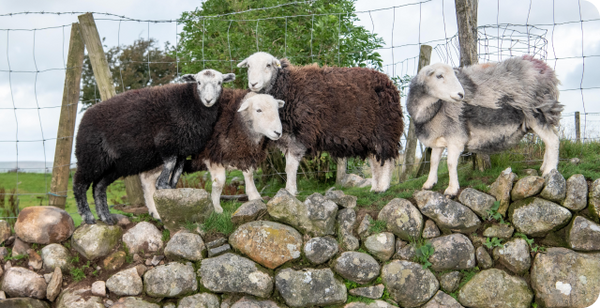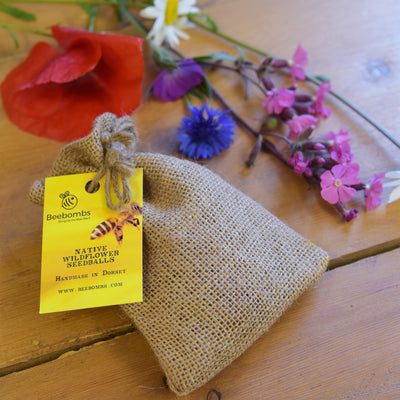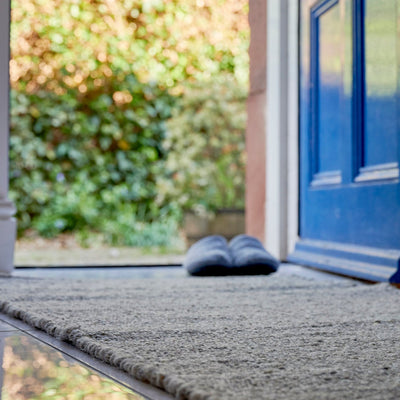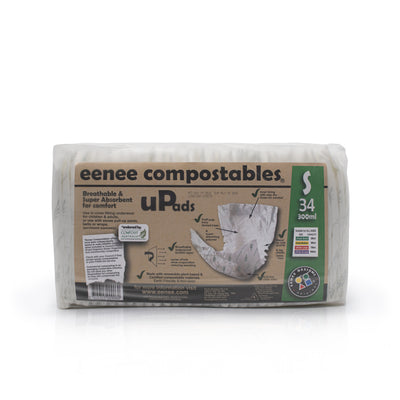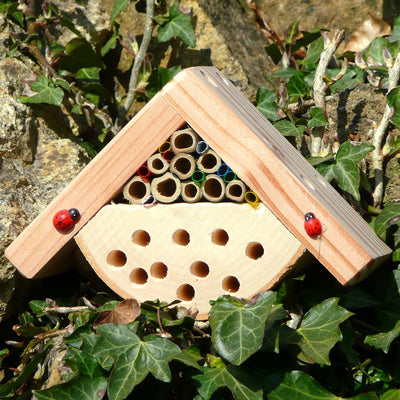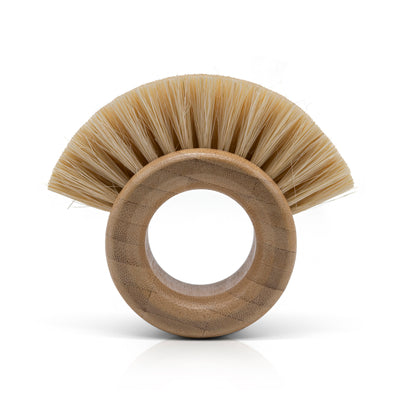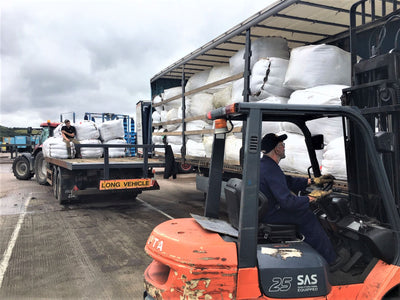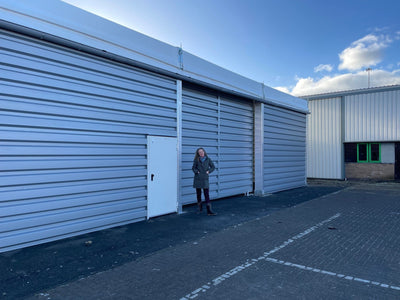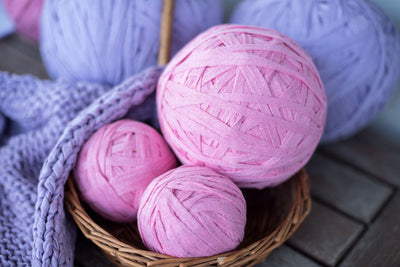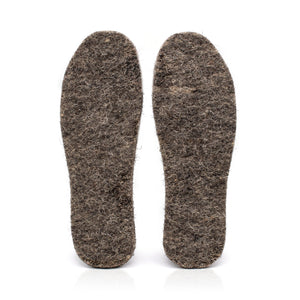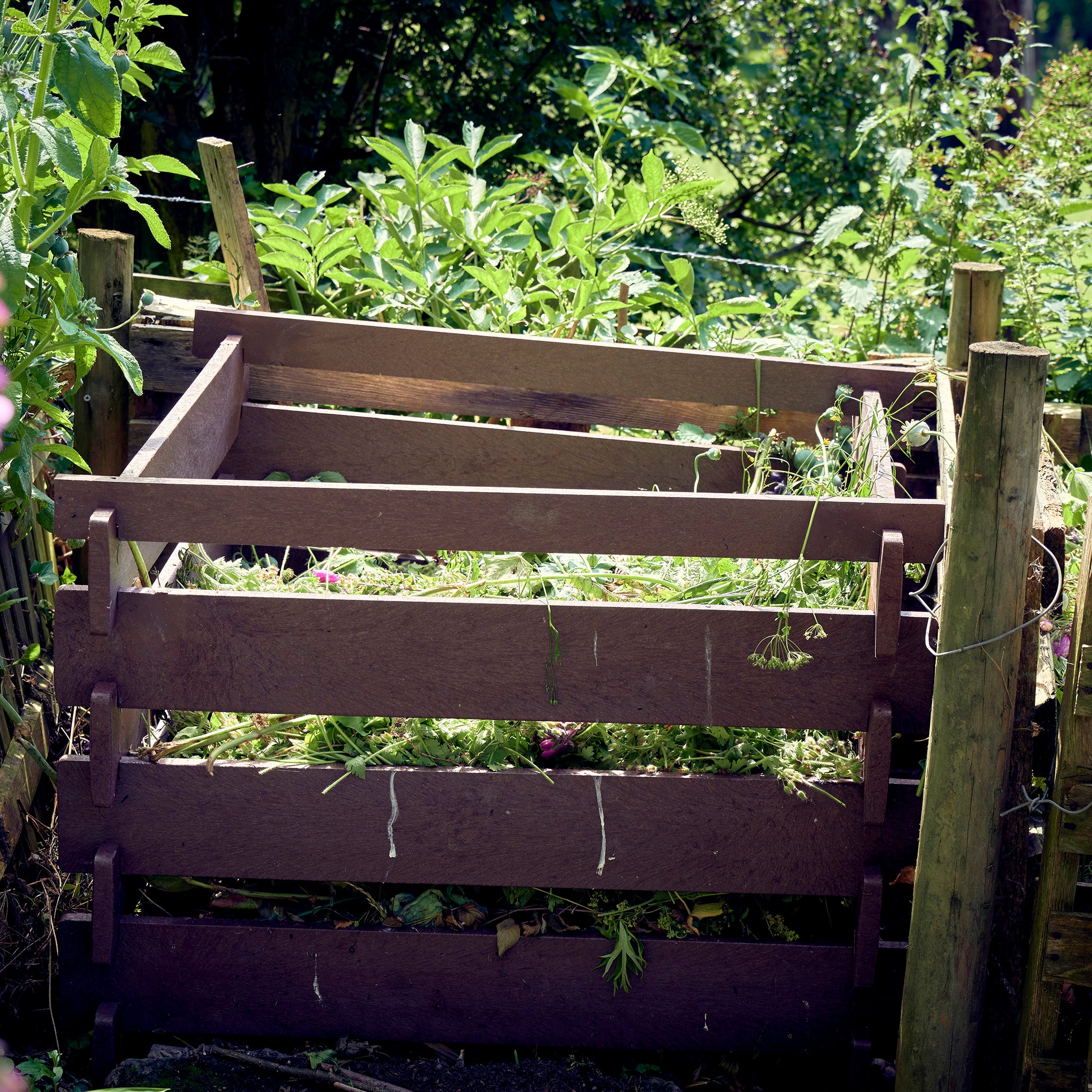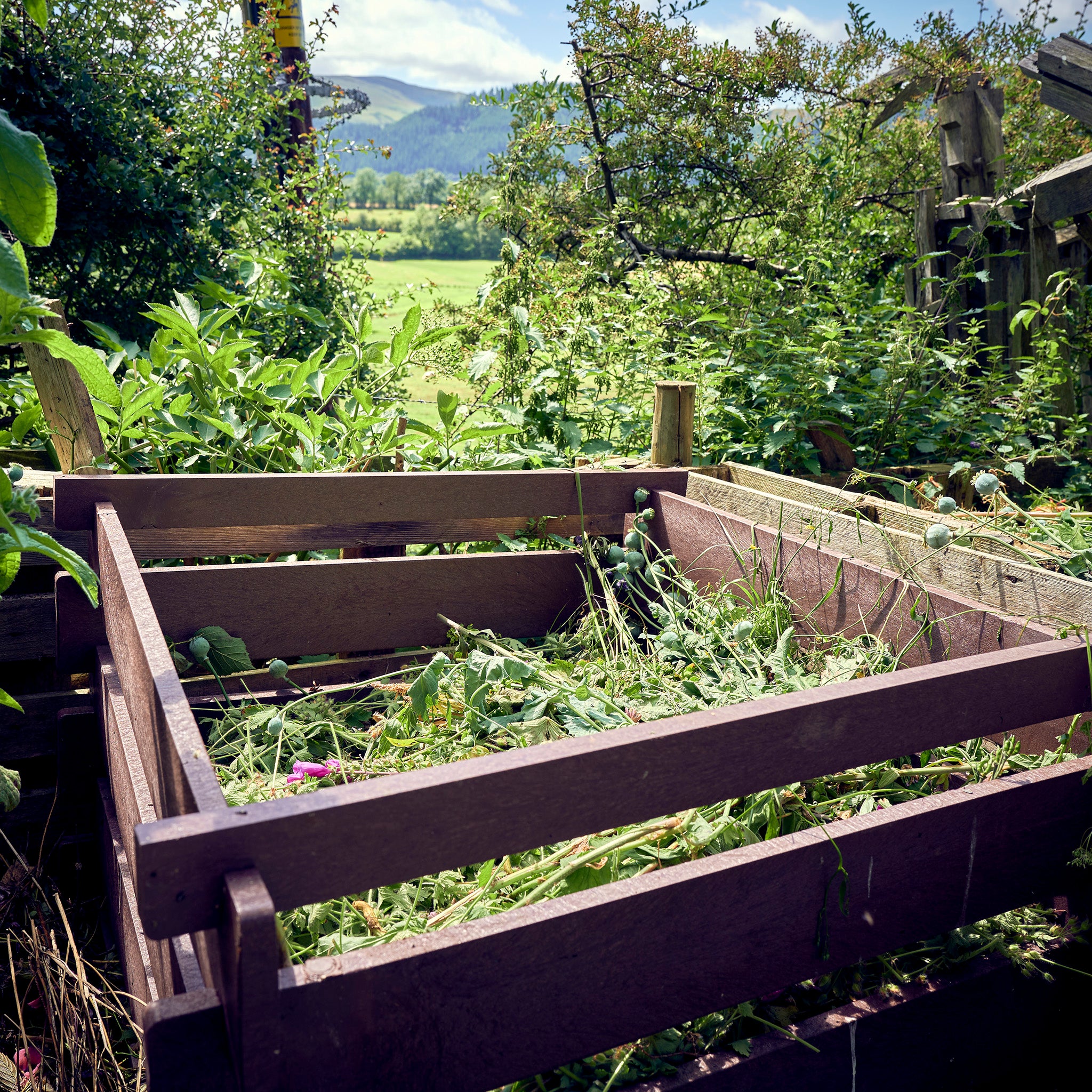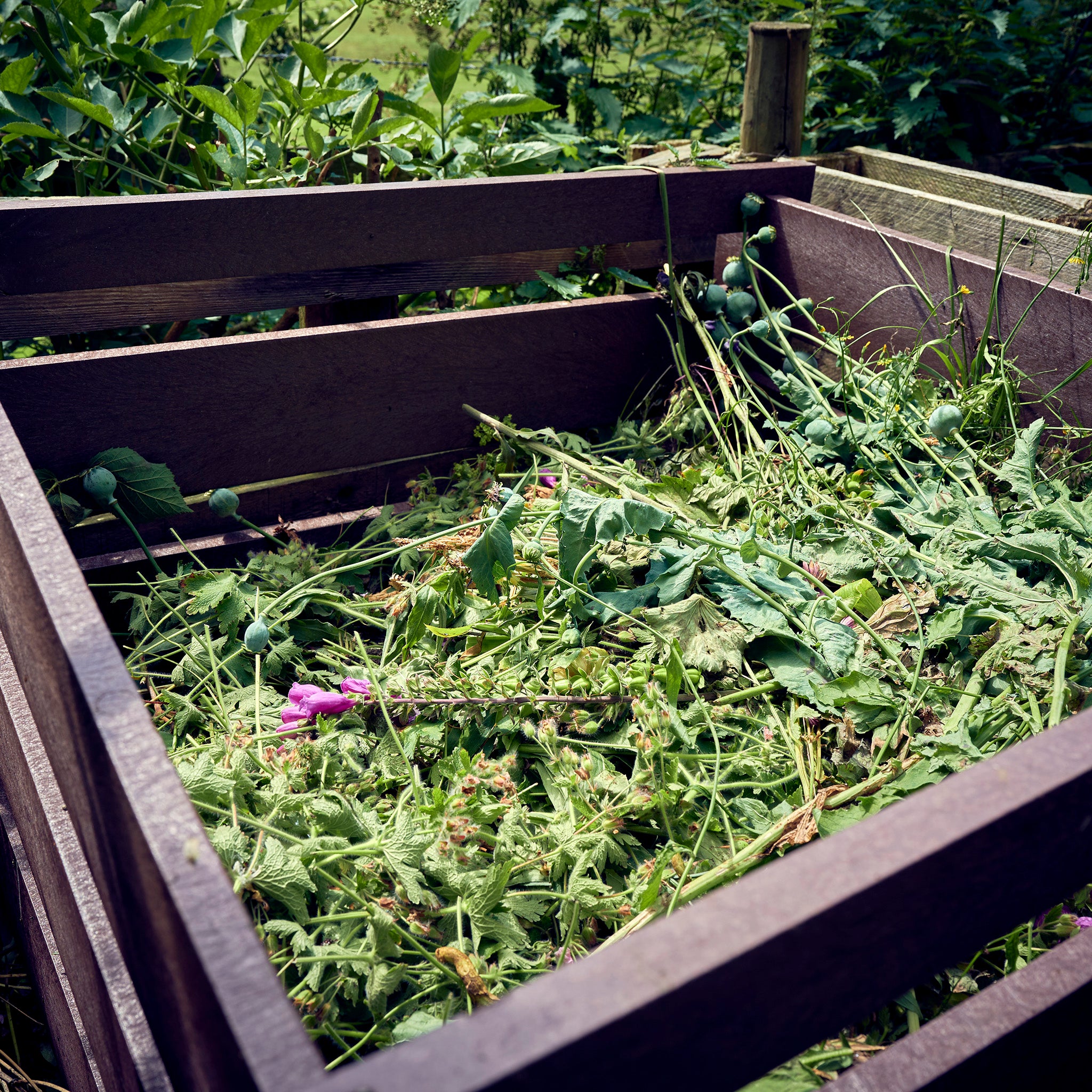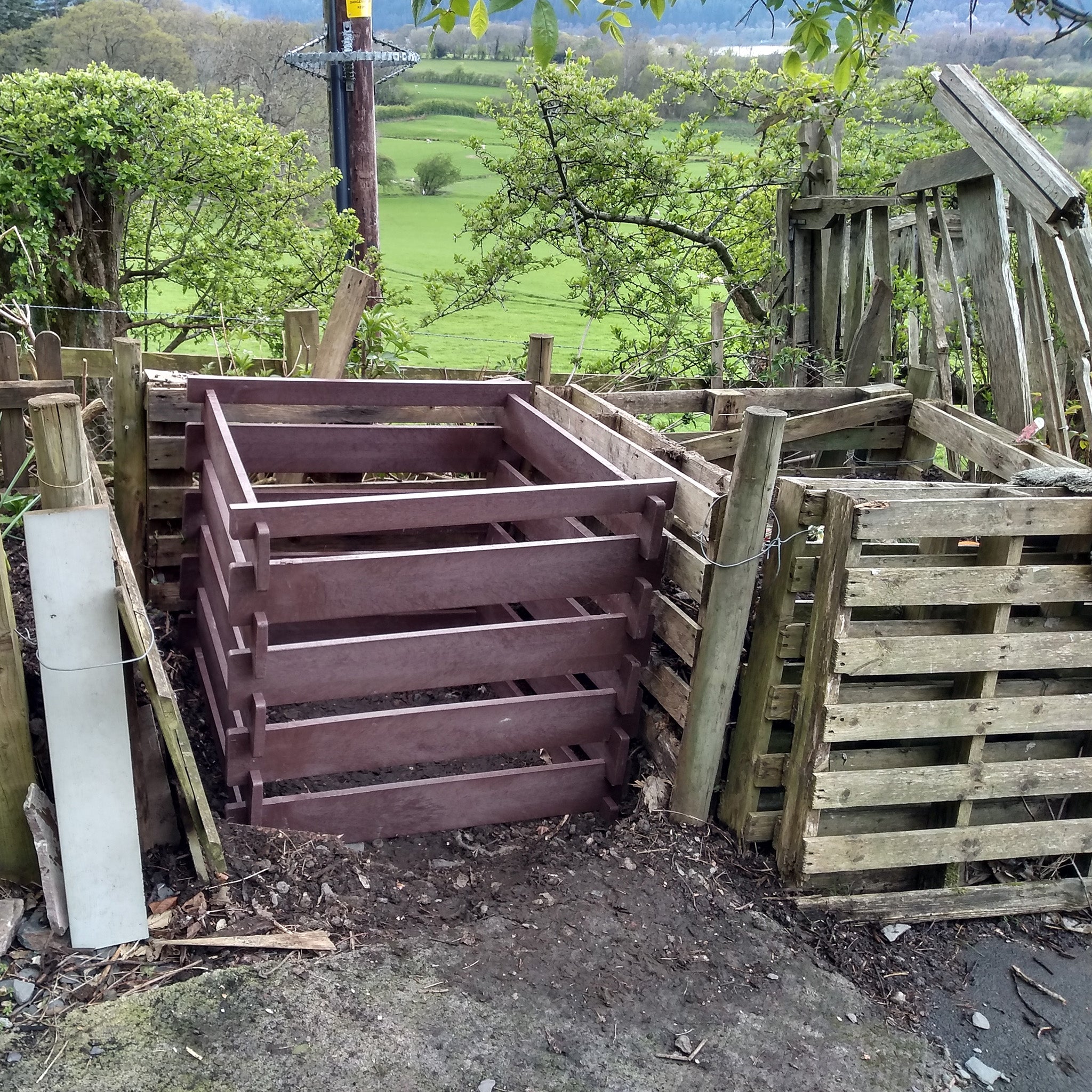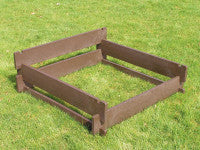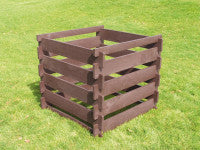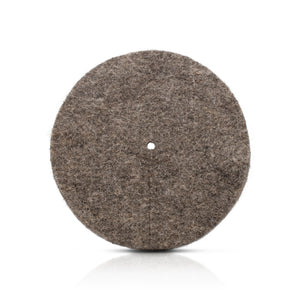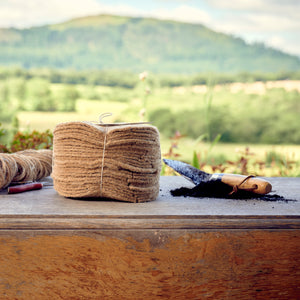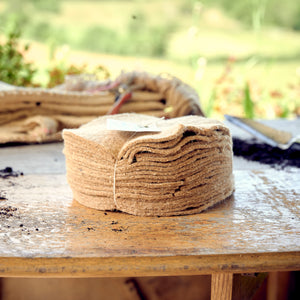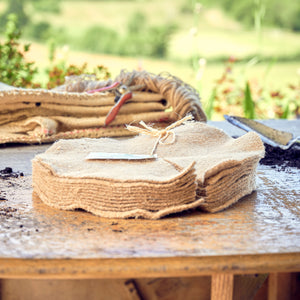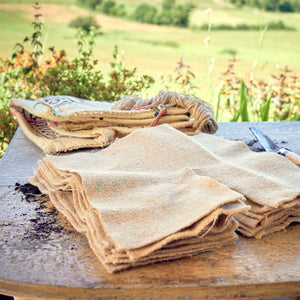This is brilliant. It’s a composter made of recycled plastic. It’s ridiculously heavy. It weighs around 56 kilos. You will have seen these made of wood, right? They slot together and within minutes you’ve got a slatted composter. And within a couple of years it’s started biodegrading itself, and becoming one with the compost. I should know, I had one, and it was great for a while.
So what’s so great about this recycled plastic wood composter? Well. I’m glad you asked. It’s made of mixed household waste plastic. The trouble with recycling plastic is that there are so many different types. Some recycled plastic products, like our Ecoforce clothes pegs, are made by extracting particular types of plastic from co-mingled waste. This is quite labour intensive and means only certain types of plastics can be used. This recycled plastic wood composter uses a whole range of different plastics mixed together to create an entirely new type of plastic called plastic lumber. The reason it’s so heavy is that it’s quite dense. And that’s what is so exciting about it, for us here at Chimney Sheep anyway: 56 kilos of household waste plastic in a beautifully made recycled plastic wood composter is 56 kilos of plastic waste not in landfill or bobbing about in the ocean! That’s like around 2800 empty 500ml bottles all incapsulated into one useful product. Or 5600 empty yoghurt pots. Or as it’s comingled waste, any combination of thousands of yoghurt pots, plastic bottles, plastic bags, plastic food trays, and all manner of other rubbish all usefully recycled. Now can you see why we’re so happy?
A composter is the perfect application for plastic lumber. It is extremely durable: it doesn’t rot or biodegrade. It doesn’t splinter or crack. It’s weather resistant and maintenance free.
Product details for the recycled plastic wood composter
- Dimensions (LxWxH): 100 x 100 x 90 cm
- Easy assembly
- Weather-resistant, maintenance-free, durable
- Material and use match perfectly
- For professional gardeners and keen amateurs
- Delivered as a kit excluding base
Durability and performance
- Weather-resistant
- Rot-resistant
- Splinter-free, therefore low risk of injury
- Can be used year round
- Moisture-repellent, does not absorb water, therefore dries fast
Environmental credentials
- Produced without preservatives
- Reduces the strain on landfills, is sustainably environmentally friendly
- Recyclable in the material cycle
- Made by Hahn Plastics who have been awarded the "BLUE ANGEL" eco-label
- Water neutral
- Non-toxic (safe according to DIN 71, Section 3 Playground Regulation)
Economic benefits of the recycled plastic wood composter
- Long service life
- Resistant to oils, brines, acids, and salt water
- No maintenance costs
- Made of high-quality processed secondary plastics (polyolefins)
How to make good compost
Composting your garden waste is an excellent way of reducing waste and producing your own lovely organic compost. If you read about composting it can seem really complicated. There are a number of ways of doing it. There is lots of useful information about composting on the RHS website. This recycled plastic wood composter is predominantly for garden waste only. The materials rot down with a combination of bacteria and worms. If you want to put food waste in the mix then it's recommended to use a closed system like the Green Johanna. If you put food waste into an open slatted composter then you are likely to attract vermin. The Green Johanna is great since you can put all kinds of food waste in it, mixed with garden waste and shredded paper and such. There are small holes in the base so useful creatures like worms and insects can get in, but the rats can't.
The great thing about the recycled plastic wood composter and the Green Joanna is that with the worms to help you can just keep adding stuff until the mix is about right. If it's too wet then add shredded paper or card, and if it's too dry add wet stuff. A lot of compost instructions advise mixing it regularly but this lovely book about compost simply advises letting the worms do the mixing and I must say in my experience that works fine.
This is brilliant. It’s a composter made of recycled plastic. It’s ridiculously heavy. It weighs around 56 kilos. You will have seen these made of wood, right? They slot together and within minutes you’ve got a slatted composter. And within a couple of years it’s started biodegrading itself, and becoming one with the compost. I should know, I had one, and it was great for a while.
So what’s so great about this recycled plastic wood composter? Well. I’m glad you asked. It’s made of mixed household waste plastic. The trouble with recycling plastic is that there are so many different types. Some recycled plastic products, like our Ecoforce clothes pegs, are made by extracting particular types of plastic from co-mingled waste. This is quite labour intensive and means only certain types of plastics can be used. This recycled plastic wood composter uses a whole range of different plastics mixed together to create an entirely new type of plastic called plastic lumber. The reason it’s so heavy is that it’s quite dense. And that’s what is so exciting about it, for us here at Chimney Sheep anyway: 56 kilos of household waste plastic in a beautifully made recycled plastic wood composter is 56 kilos of plastic waste not in landfill or bobbing about in the ocean! That’s like around 2800 empty 500ml bottles all incapsulated into one useful product. Or 5600 empty yoghurt pots. Or as it’s comingled waste, any combination of thousands of yoghurt pots, plastic bottles, plastic bags, plastic food trays, and all manner of other rubbish all usefully recycled. Now can you see why we’re so happy?
A composter is the perfect application for plastic lumber. It is extremely durable: it doesn’t rot or biodegrade. It doesn’t splinter or crack. It’s weather resistant and maintenance free.
Product details for the recycled plastic wood composter
- Dimensions (LxWxH): 100 x 100 x 90 cm
- Easy assembly
- Weather-resistant, maintenance-free, durable
- Material and use match perfectly
- For professional gardeners and keen amateurs
- Delivered as a kit excluding base
Durability and performance
- Weather-resistant
- Rot-resistant
- Splinter-free, therefore low risk of injury
- Can be used year round
- Moisture-repellent, does not absorb water, therefore dries fast
Environmental credentials
- Produced without preservatives
- Reduces the strain on landfills, is sustainably environmentally friendly
- Recyclable in the material cycle
- Made by Hahn Plastics who have been awarded the "BLUE ANGEL" eco-label
- Water neutral
- Non-toxic (safe according to DIN 71, Section 3 Playground Regulation)
Economic benefits of the recycled plastic wood composter
- Long service life
- Resistant to oils, brines, acids, and salt water
- No maintenance costs
- Made of high-quality processed secondary plastics (polyolefins)
How to make good compost
Composting your garden waste is an excellent way of reducing waste and producing your own lovely organic compost. If you read about composting it can seem really complicated. There are a number of ways of doing it. There is lots of useful information about composting on the RHS website. This recycled plastic wood composter is predominantly for garden waste only. The materials rot down with a combination of bacteria and worms. If you want to put food waste in the mix then it's recommended to use a closed system like the Green Johanna. If you put food waste into an open slatted composter then you are likely to attract vermin. The Green Johanna is great since you can put all kinds of food waste in it, mixed with garden waste and shredded paper and such. There are small holes in the base so useful creatures like worms and insects can get in, but the rats can't.
The great thing about the recycled plastic wood composter and the Green Joanna is that with the worms to help you can just keep adding stuff until the mix is about right. If it's too wet then add shredded paper or card, and if it's too dry add wet stuff. A lot of compost instructions advise mixing it regularly but this lovely book about compost simply advises letting the worms do the mixing and I must say in my experience that works fine.


